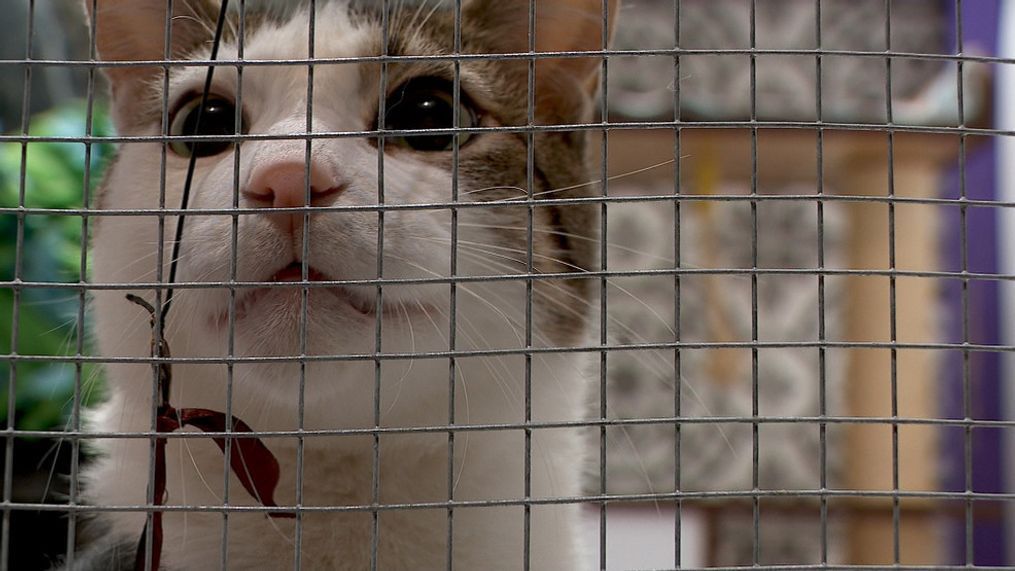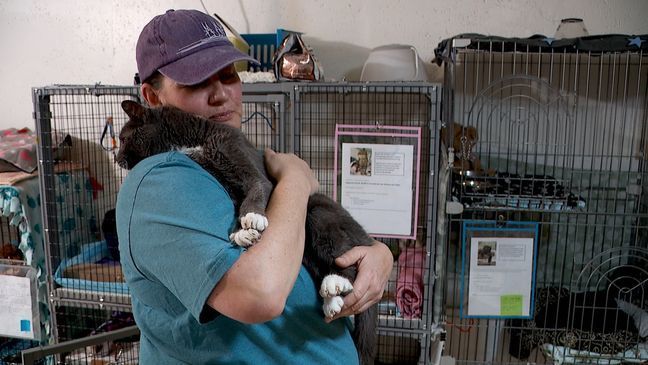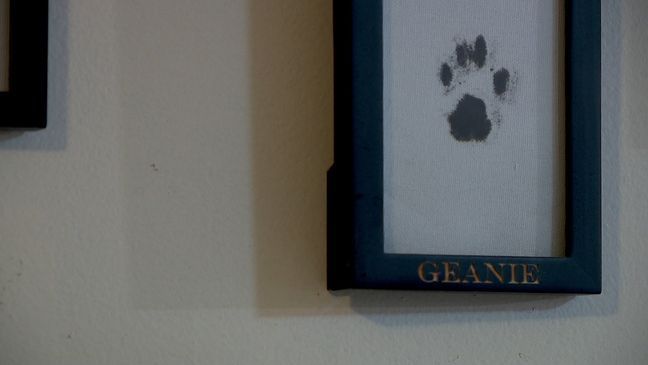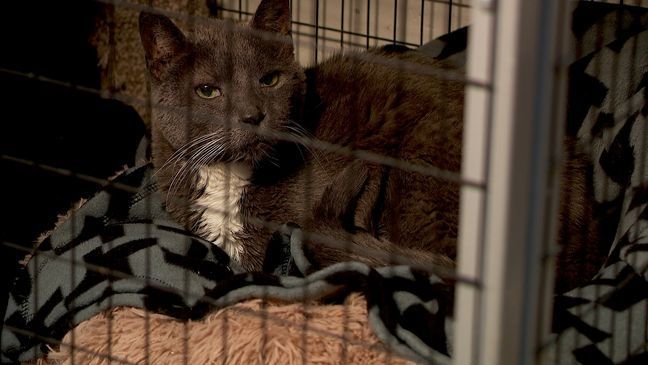Non-profit 'Whiskers' in Utah dedicated to giving high-risk cats a second chance
SALT LAKE CITY (KUTV) — Many cats in Utah’s shelters are considered to be “high-risk.” This could be seniors, medical cases, and special needs animals.
Whiskers is a non-profit organization dedicated to giving all cats a second chance; and helping our four-legged friends isn’t an easy job.
Jessica Vigos, who runs the organization, gave us a tour of her basement where she can house a dozen cats at any given time.
“This is Link, he has diabetes," Vigos said. She opened another cage. “This is Sausage, he has kidney failure.”
Vigos has been working with various shelters and rescues for over a decade.
“I’ve trapped, spayed, and nurtured over 3500 cats," she said.
Springtime means kittens, and the shelters are overflowing with them.
Cats that aren’t healthy, walking to the front of the cage, those cats are at risk to be euthanized because shelters don’t have the resources to help them," Vigos said.
But she believes that everybody deserves another shot.
I am a recovering addict," Vigos said. “Much like I needed a second chance at one time, I see these animals that need a chance.
So, she started Whiskers, a non-profit dedicated to helping high-risk cats.
“Really my passion of why Whiskers was made was to help those cats that are pretty much the underdog and overlooked," Vigos said.
Over the years Jessica has brought hundreds of cats into her home. It is very normal for a cat to be with Whiskers for six months. Some even stay for a year.
She and her team of almost 30 volunteers do whatever it takes to find these special cats a new home.
If I didn’t have people helping me take care of the cats and foster homes willing to take care of some of these cats, there is no way I would be successful," she said.
Volunteers like Kate Johnson gives her time to Whiskers.
“That means coming here and doing laundry or cleaning litter boxes, and I can walk away and think this made Jessica’s life a little easier,” said Johnson.
This is a tough job and rescue workers need to have thick skin.
“If something horrific happens, you still have to go on and take care of the animals in your care.," said Vigos.
The cost of medications, food, and litter can add up quick.
“We are around $4,000 to $6,000 a month. If there are emergencies that number can go up," she said.
Seeing a cat find a forever home is what drives Jessica in her never-ending pursuit to help “high-risk” cats.




